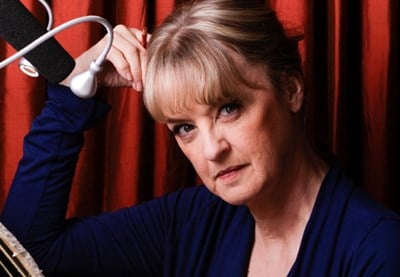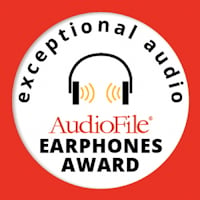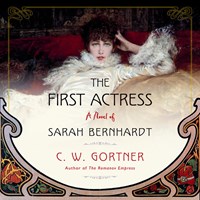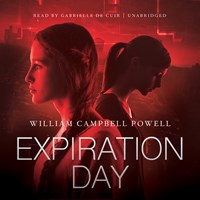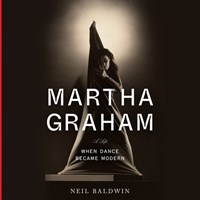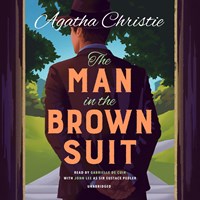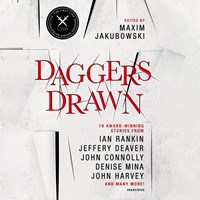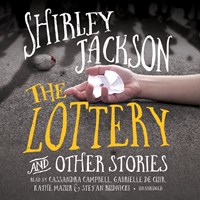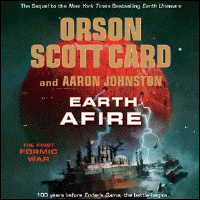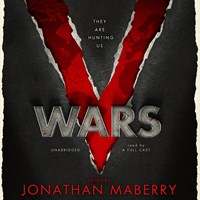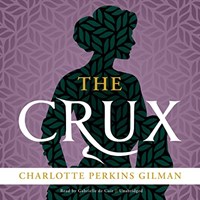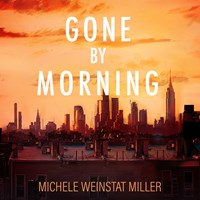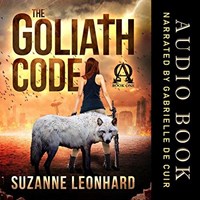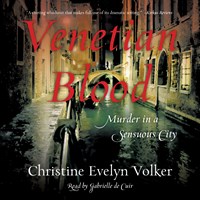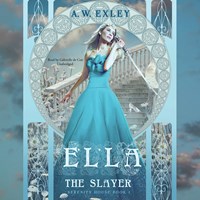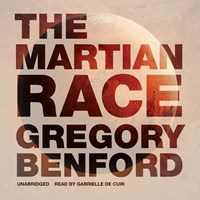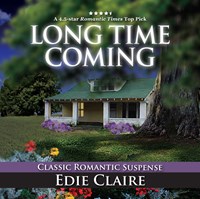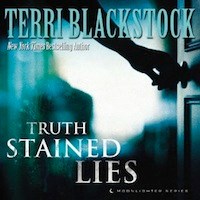Recent audiobooks
Videos
Talking with Gabrielle de Cuir & Stefan Rudnicki: IN THE STUDIO
In 1966, brash, young science fiction writer Harlan Ellison pitched a script idea to a struggling new TV series called “Star Trek.” After numerous fights and rewrites, his story, “The City on the Edge of Forever,” was aired on April 6, 1967, and became one of the most popular “Star Trek” episodes of all time. Ellison never liked the rewrite and said so, giving birth to one of greatest feuds in television history. Skyboat Audio’s Stefan Rudnicki and Gabrielle de Cuir talked to AudioFile about bringing the original unedited version of “The City on the Edge of Forever” to audio.
AF: How did Skyboat get drawn into one of the most controversial chapters in the “Star Trek” canon?
SR: We’ve been producing Harlan’s work on audio for over 15 years. During a conversation over a year ago, it came to light that he very much wanted his version of “ The City on the Edge of Forever ” produced on audio.
GDC: I nearly jumped out of my skin when Harlan informed us he owned the rights to the unaired version. I’m a great “Star Trek: The Original Series” fan, and this episode has been universally considered the most beloved episode in “Star Trek” history. The thought of Harlan being allowed his “rant” (if you must) on audio, along with directing his unsullied original teleplay, with a full cast, was like Christmas morning for me. It’s controversial--and pure, fabulous science fiction. It’s a crucial part of “Star Trek” history. I knew we had to do it. And we had to do it now.
AF: So, how DID you produce it?
SR: This year is the 50th anniversary of the original “Star Trek” television series. We wanted to get this audiobook released in 2016 to take advantage of that window of marketing opportunity. We didn’t have any financial backing in place for this major production when we began recording the introduction with Harlan narrating in the fall of 2015. Harlan was, at that time, still recuperating from a minor stroke, so we took things slowly, a few hours at a time, but enthusiastically, and he began recording his 80-page introduction. That fall, we were also turned down by two major publishing partners who felt that the cost of such a production was something they couldn’t justify.
AF: How did you decide how to cast the book?
GDC: It’s such a masterful piece of science fiction that we basically approached it as such. Harlan’s writing guided us swiftly and smoothly to the right choices. For example, he described Edith Keeler’s charm and voice in great detail. To me, Jean Smart has all these qualities, and we were thrilled that she accepted this pivotal role.
AF: How did you decide who would read which parts of the teleplay? I noticed the narrator voice switches as the story proceeds.
GDC: The teleplay is set up in a standard 1960s Prologue/Acts One through Four/ Epilogue format. The teleplay includes Harlan’s biting and fantastic script directions. There was no way we could omit these. So we needed a narrator. Creatively and financially (remember, still no backing), it made the most sense to have Stefan narrate. But I insisted the teleplay would be better served if he recorded the godlike character called THE GUARDIAN OF FOREVER. So then Stefan suggested we rotate the narrators: that is, we give LeVar Burton the Prologue, David Gerrold (the author of “The Trouble With Tribbles” “Star Trek” episode) Act One, and so on. This provided a wonderful solution to the one-day scheduling issues and was a dynamic creative device.
AF: So how would you describe the emotional climate and the logistics the day you recorded the teleplay?.
GDC: There was magic in the air that day--an indescribable combination of excitement and solemnity. It was the most cohesive ensemble of actors I’ve ever worked with. We were all there for one purpose. Everyone wanted to be part of this story--to document this historic teleplay and to honor Harlan’s intent as an author. Everyone we approached to participate in the teleplay, without exception, was willing to move mountains to make this tribute to Harlan and “Star Trek” happen. LeVar accepted, saying that he would never have been in this business without having read Harlan. Scott Brick said at the Los Angeles WonderCon, “I don’t know if I’ve ever been prouder professionally of anything in my entire life.” This was the type of commitment we experienced on this project. We hardly ever stopped and never required multiple takes. Everyone was at the top of their game, and a rehearsal wasn’t required. Once it started, it was like we couldn’t--or didn’t want to--stop it. Pure storytelling magic!
AF: How big of a “dream come true” was it for the cast to get to play their childhood heroes? Did they have fun?
GDC: Fun doesn’t even begin to describe it! It was like everyone was high on just the thought of being able to narrate these iconic characters. It was hilarious seeing all these consummate performers giggling between takes and actually signing each other’s scripts like yearbooks at lunch.
AF: So what happened in the aftermath of that glorious day??
SR: Well, we woke up the next morning and knew we had to secure the funding to finish and publish the project. We’d gone out on a limb financially, and the branch was beginning to creak. We had yet to start the edit, and we still had half the book to record in Afterwords and Essays, as well as artwork and distribution. We set up a Kickstarter campaign, and fans poured out from all around the world. And with a generous social media plug by Neil Gaiman, a great fan of Harlan’s, we funded the project at over 20 thousand dollars. Once we received the funds, we were able to begin the edit with our wizard friends at PhaseShiftAv in the UK, secure some stunning art work by Hugo winner Elizabeth Leggett, and strike a great distribution deal with our long-standing friends and partners at Blackstone Audio.
AF: What did Harlan think of Skyboat’s performance of his original script?
SR: Well, since he’s in the cast, he can’t compliment himself too much since it would seem gratuitous! Let’s just say that Harlan has been a staunch supporter of our work in audio for many years. It’s pleased him, and his lovely wife, Susan, to no end that he was able to have his say on this issue on audio. And he was especially pleased to play the role of the Trooper, the WWI Verdun veteran, which was excised from the aired script.
AF: What’s been the fan reaction to this “insider” story?
GDC: The reaction has been overwhelmingly positive--proven by the sum raised to make this audiobook a reality. Since we’ve released it, the overwhelming tone of the comments is excitingly supportive. Many fans have expressed that Harlan’s “rant” against Rodenberry is too caustic, but it was a bitter battle, and war is never pretty. Many fans only have room in their hearts for the aired version, and that’s understandable. I loved, and continue to love, that version also. But the majority of listeners had no idea of the depth of the conflict and are impressed by the presentation of Harlan’s side of things.
AF: What lies ahead for the production?
SR: We’re now in the process of fulfilling the 392 Kickstarter Backer Awards. We’ve been accepted at the Official 50th Star Trek Convention in Las Vegas in August, where we have an exhibitor’s booth and plan to promote not only this production but also other audiobooks to the Star Trek Universe! We think it’s a golden opportunity to reach a whole new audience. And we want to thank these fans in person for making this dream come true.--Brian Price
Published in AudioFile Magazine, August/September 2016
Photo by Alex Linares
The latest audiobook reviews, right in your inbox.
Get our FREE Newsletter and discover a world of audiobooks.


